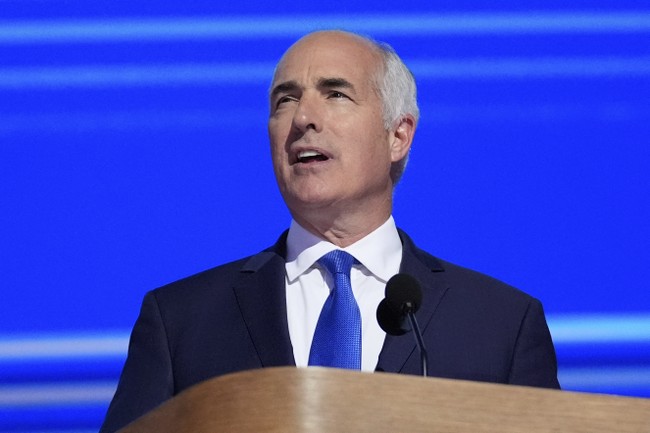A Wall Street Journal report has taken a deep dive into Ohio senator and Republican vice-president pick JD Vance’s world view of childlessness as he is at the center of the raging controversy over his ‘childless cat ladies’ remark targeted at Democratic politicians — three in particular: Kamala Harris, Alexandria Ocasio Cortez and Pete Buttigieg. Vance stood by his past comment and said he does not have anything against cats or against those who can’t become parents — but against those who are anti-child, anti-family.WSJ report said JD Vance sees Americans’ reluctance to have children as a culture of social isolation, risk aversion.
America’s declining fertility rate has been on Vance’ mind for quite some time. In an interview with WSJ in April, Vance described low fertility as having many causes, no simple remedy and negative consequences beyond simply a smaller workforce and less sustainable programs such as Social Security. “A very important part of kids’ social development obviously is spending time with other kids,” Vance said. But with lower birthrates, “you have a lot less brothers and sisters, you also have many, many fewer cousins. I think childhood has become much more socially isolated.”
Vance said in that interview that there are many possible causes of lower birthrates and one is of financial. “He cited high housing costs in particular. In the two decades after World War II, he said, couples could buy a 1,500- to 1,900-square-foot starter home on one middle-class income. Today, he said, the U.S. doesn’t build a lot of starter homes that size, and for people with even two middle-class incomes, the bigger starter homes on the market are far outside their price range,” the WSJ report said.
Young Americans are growing up more socially isolated. They are not dating as much as they used to and they are spending less time socially resulting is less marriage and much thinner friendship groups.
Vance, the report claimed, said lower fertility might also be the result of less patriotism. “In Israel, which has relatively high fertility, ‘there’s still a fundamental sense that they love their country, they want their country to keep going. America was always considered by our European friends to be kind of jingoistic back in the 1990s and 2000s. We had pretty healthy fertility rates back then. Now that we’re a little bit more like our European counterparts, much less sort of innately patriotic than we were 20, 30 years ago, our fertility rates have declined’.” he said.
“If you have kids you’re probably a little bit more willing to take on risk and you’re probably a little bit less willing to do it if you don’t have family,” Vance explained.
America’s declining fertility rate has been on Vance’ mind for quite some time. In an interview with WSJ in April, Vance described low fertility as having many causes, no simple remedy and negative consequences beyond simply a smaller workforce and less sustainable programs such as Social Security. “A very important part of kids’ social development obviously is spending time with other kids,” Vance said. But with lower birthrates, “you have a lot less brothers and sisters, you also have many, many fewer cousins. I think childhood has become much more socially isolated.”
Vance said in that interview that there are many possible causes of lower birthrates and one is of financial. “He cited high housing costs in particular. In the two decades after World War II, he said, couples could buy a 1,500- to 1,900-square-foot starter home on one middle-class income. Today, he said, the U.S. doesn’t build a lot of starter homes that size, and for people with even two middle-class incomes, the bigger starter homes on the market are far outside their price range,” the WSJ report said.
Young Americans are growing up more socially isolated. They are not dating as much as they used to and they are spending less time socially resulting is less marriage and much thinner friendship groups.
Vance, the report claimed, said lower fertility might also be the result of less patriotism. “In Israel, which has relatively high fertility, ‘there’s still a fundamental sense that they love their country, they want their country to keep going. America was always considered by our European friends to be kind of jingoistic back in the 1990s and 2000s. We had pretty healthy fertility rates back then. Now that we’re a little bit more like our European counterparts, much less sort of innately patriotic than we were 20, 30 years ago, our fertility rates have declined’.” he said.
“If you have kids you’re probably a little bit more willing to take on risk and you’re probably a little bit less willing to do it if you don’t have family,” Vance explained.




















Discussion about this post